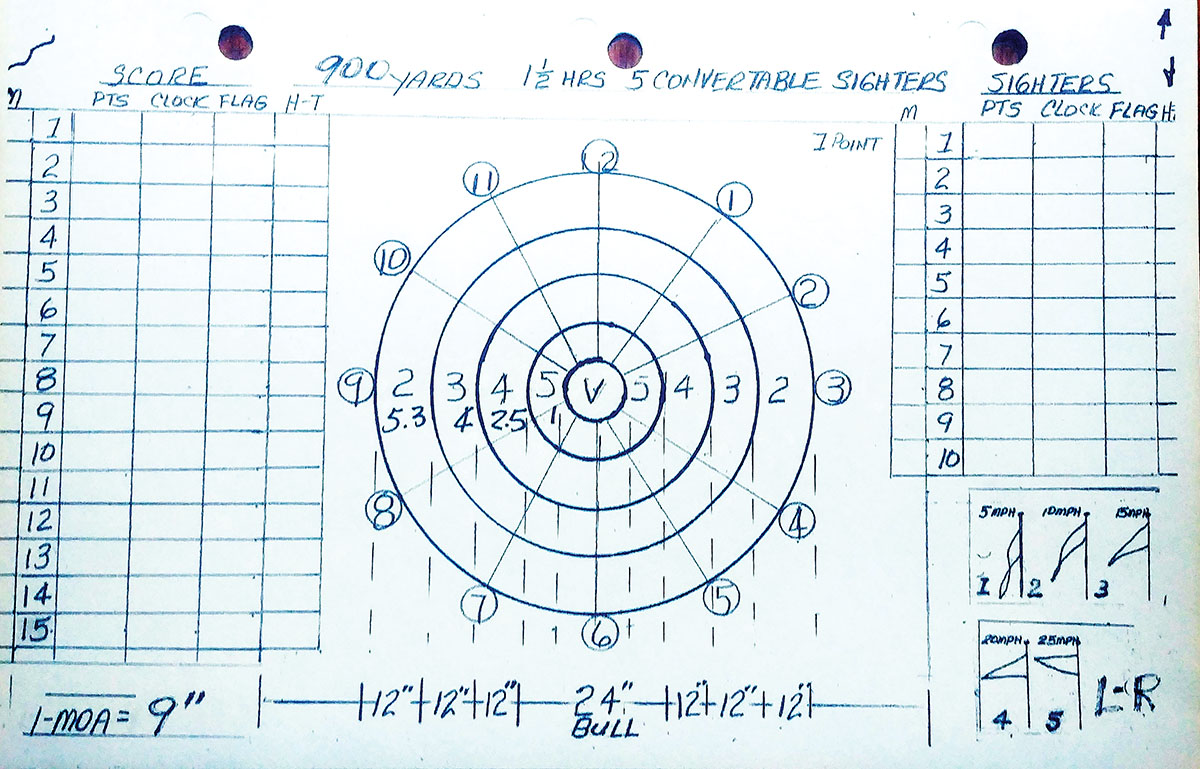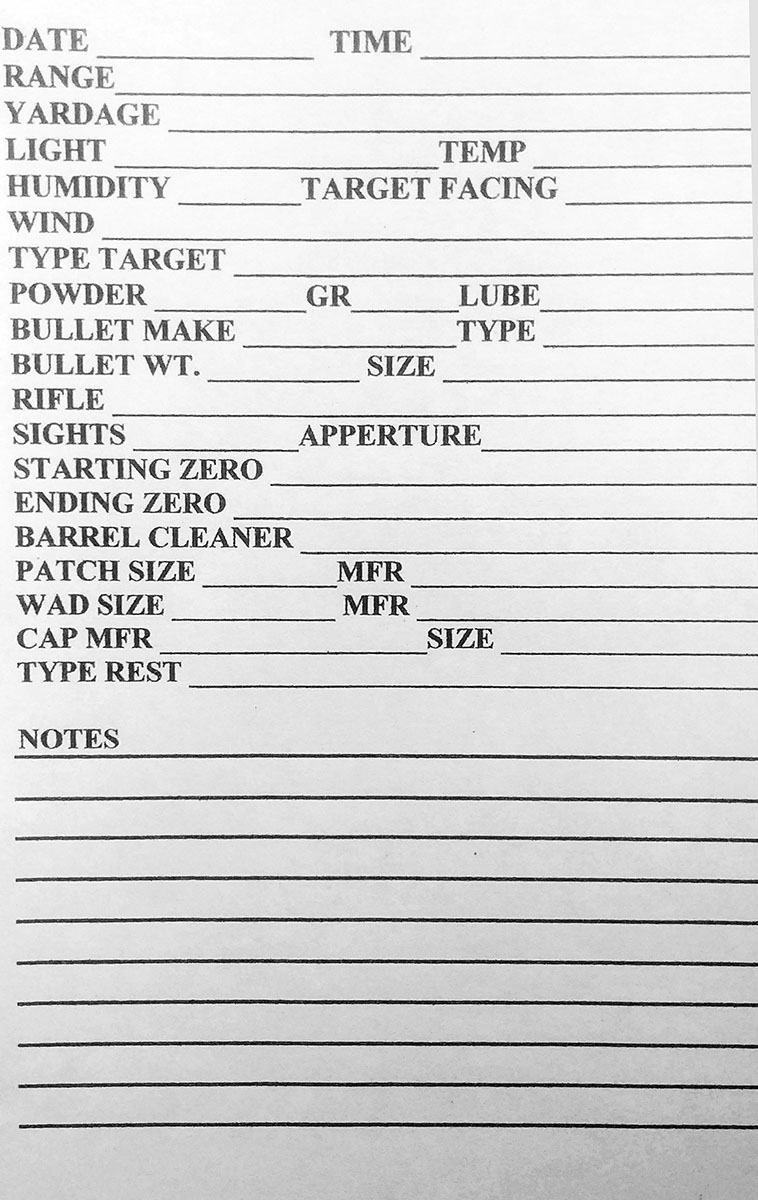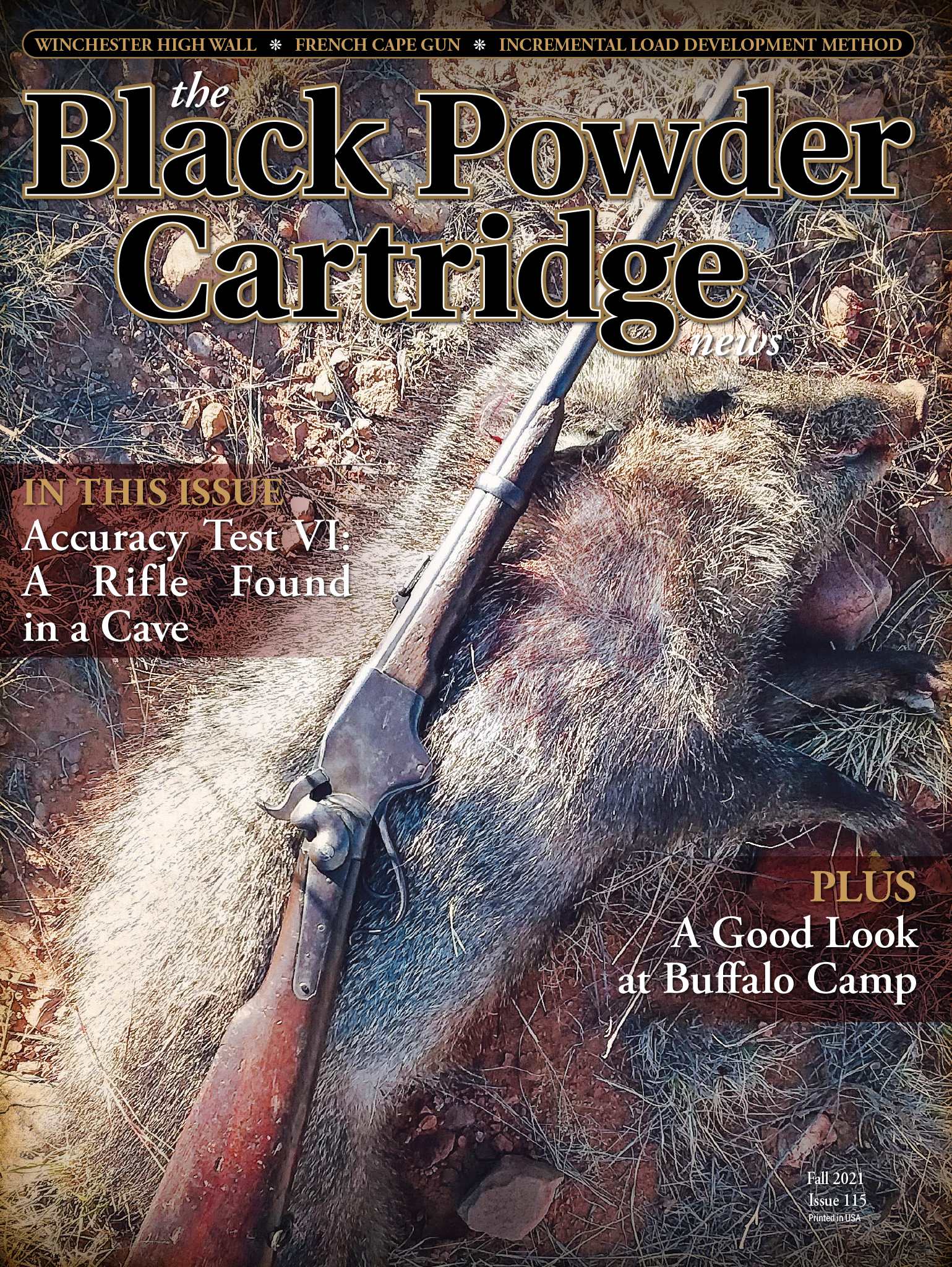Be More than a Wannabe Part III
feature By: Ed Decker | August, 21

Recordkeeping
To help improve my scores, I designed my own score and recordkeeping form. I can’t see how any shooter can get by without good recordkeeping. Good records can help a shooter make decisions from shot to shot during a match, or a record of things that happened during a match to analyze and make adjustments for the next yardage, the next day or the next match. It makes no sense to keep these records if you don’t take the time to study and refer to them and learn. Referring back to records is particularly helpful when going to a range and a shooter wants to see what their sight settings were when they shot there last, and compare what the temperature and light conditions were then versus now. One thing a lot of shooters forget to record when they finish their relay is their ending elevation and windage, mirage conditions, headwind or tailwind. Shooters should try to keep recordkeeping quick and simple, so it doesn’t interfere with finishing the relay on time. Sharing information with other shooters really helps them, particularly a new shooter. Some shooters want to keep all their secrets to themselves, as if they have the magic bullet, special lube, custom nipple and so forth. That statement brings me to the “Secret to Winning.”
Secret to Winning

The strategy of helping each other and sharing information works not only for team competition but for individual competition as well. Helping your competitors makes everyone a better shooter. The stiffer the competition, the harder everyone works to be a better shooter. There is no thrill beating an individual or team who doesn’t shoot very well. This strategy also helps build lasting friendships. I wouldn’t take anything for the friendships we have made all over the United States and the world.
There is another important element to winning that a lot of shooting organizations have forgotten. Having fun. Isn’t that why we all started shooting? I remember the times at my grandfather’s place, having a shooting match on Sunday afternoons with men, women, boys and girls, seeing who could strike a match stick at 25 yards with a .22 rifle. So, don’t forget to have fun and stay out of petty politics that spoil the sport.
Please continue sending me your comments and shot groups at: onceuponatimetwo@gmail.com.
Thank you, and in the next issue we will talk about shooting with a sling.


